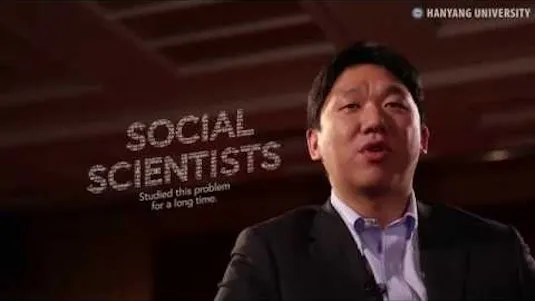
The meaning of crime 
This free course, The Meaning of Crime, examines how we, as a 'society', define crime. You will explore the fear that is generated by crime, the different types of crime, and the impact of crime on individuals and communities. You will also consider the role of the criminal justice system in responding to crime. By the end of the course, you will have a better understanding of the meaning of crime. ▼
ADVERTISEMENT
Course Feature
![]() Cost:
Cost:
Free
![]() Provider:
Provider:
OpenLearn
![]() Certificate:
Certificate:
Free Certification
![]() Language:
Language:
English
![]() Start Date:
Start Date:
On-Demand
Course Overview
❗The content presented here is sourced directly from OpenLearn platform. For comprehensive course details, including enrollment information, simply click on the 'Go to class' link on our website.
Updated in [May 25th, 2023]
The Meaning of Crime: This course examines how crime is defined in society and the fear it generates. Learners will explore the different types of crime, the legal definitions of crime, and the impact of crime on individuals and communities. They will also gain an understanding of the causes of crime and the various approaches to crime prevention.
Why Learn About Crime: Understanding crime is essential for anyone interested in the criminal justice system, law enforcement, or social work. It is also important for anyone who wants to understand the impact of crime on society and how to prevent it. This course provides a comprehensive overview of the meaning of crime and its implications.
Development Paths: Learners can use this course as a foundation for further study in criminal justice, law enforcement, or social work. They can also use it to gain a better understanding of the causes of crime and the various approaches to crime prevention.
Related Learning Suggestions: Learners may also be interested in courses on criminology, criminal justice, law enforcement, or social work. They may also be interested in courses on the sociology of crime, the psychology of crime, or the economics of crime.
[Applications]
After completing this course, students can apply their knowledge of the meaning of crime to their everyday lives. They can use their understanding of the various definitions of crime to better understand the criminal justice system and the laws that govern their society. Additionally, they can use their knowledge to help inform their decisions on how to best protect themselves and their communities from crime. Finally, they can use their understanding of the meaning of crime to help inform their opinions on how to best address the causes of crime.
[Career Paths]
1. Criminal Justice Professional: Criminal justice professionals work in a variety of roles, from law enforcement to corrections to legal services. They are responsible for upholding the law and ensuring public safety. With the rise of technology, criminal justice professionals are increasingly using data-driven approaches to identify and address crime.
2. Forensic Scientist: Forensic scientists use scientific methods to analyze evidence from crime scenes. They are responsible for collecting, analyzing, and interpreting evidence to help solve crimes. As technology advances, forensic scientists are increasingly using advanced techniques such as DNA analysis and digital forensics.
3. Cybersecurity Analyst: Cybersecurity analysts are responsible for protecting computer networks and systems from cyber threats. They use a variety of tools and techniques to identify and address potential security risks. With the rise of cybercrime, cybersecurity analysts are in high demand and are expected to be in even greater demand in the future.
4. Criminologist: Criminologists study the causes and effects of crime. They use a variety of methods to analyze crime data and develop strategies to reduce crime. With the rise of technology, criminologists are increasingly using data-driven approaches to identify and address crime.
[Education Paths]
1. Criminology: Criminology is the scientific study of the causes, consequences, and prevention of crime. It is a multidisciplinary field that draws on sociology, psychology, law, and other social sciences to understand the causes of criminal behavior and the social impact of crime. Criminologists study the nature of crime, its causes, and its effects on individuals, families, and communities. Developing trends in criminology include the use of technology to track and analyze criminal behavior, the use of data-driven approaches to crime prevention, and the use of evidence-based practices to reduce recidivism.
2. Criminal Justice: Criminal justice is the system of practices and institutions of governments directed at upholding social control, deterring and mitigating crime, or sanctioning those who violate laws with criminal penalties and rehabilitation efforts. Criminal justice degrees provide students with the knowledge and skills to work in law enforcement, corrections, and the court system. Developing trends in criminal justice include the use of technology to improve the efficiency of the criminal justice system, the use of data-driven approaches to crime prevention, and the use of evidence-based practices to reduce recidivism.
3. Law: Law is a system of rules and regulations that are enforced through social institutions to govern behavior. Law degrees provide students with the knowledge and skills to work in the legal profession, including as lawyers, judges, and legal advisors. Developing trends in law include the use of technology to improve the efficiency of the legal system, the use of data-driven approaches to legal decision-making, and the use of evidence-based practices to ensure justice is served.
4. Forensic Science: Forensic science is the application of science to criminal and civil laws, mainly—on the criminal side—during criminal investigation, as governed by the legal standards of admissible evidence and criminal procedure. Forensic science degrees provide students with the knowledge and skills to work in the field of forensic science, including as crime scene investigators, forensic scientists, and forensic psychologists. Developing trends in forensic science include the use of technology to improve the accuracy of forensic analysis, the use of data-driven approaches to crime investigation, and the use of evidence-based practices to ensure justice is served.
Course Provider

Provider OpenLearn's Stats at AZClass
Discussion and Reviews
0.0 (Based on 0 reviews)
Explore Similar Online Courses

Get ready for a Masters in Data Science and AI

PySpark Tutorial

Python for Informatics: Exploring Information

Social Network Analysis

Introduction to Systematic Review and Meta-Analysis

The Analytics Edge

DCO042 - Python For Informatics

Causal Diagrams: Draw Your Assumptions Before Your Conclusions

Whole genome sequencing of bacterial genomes - tools and applications

Criminology and Criminal Psychology Certified CSI+ Course

Criminology : Fundamentals of Criminal Psychology and Law


Start your review of The meaning of crime